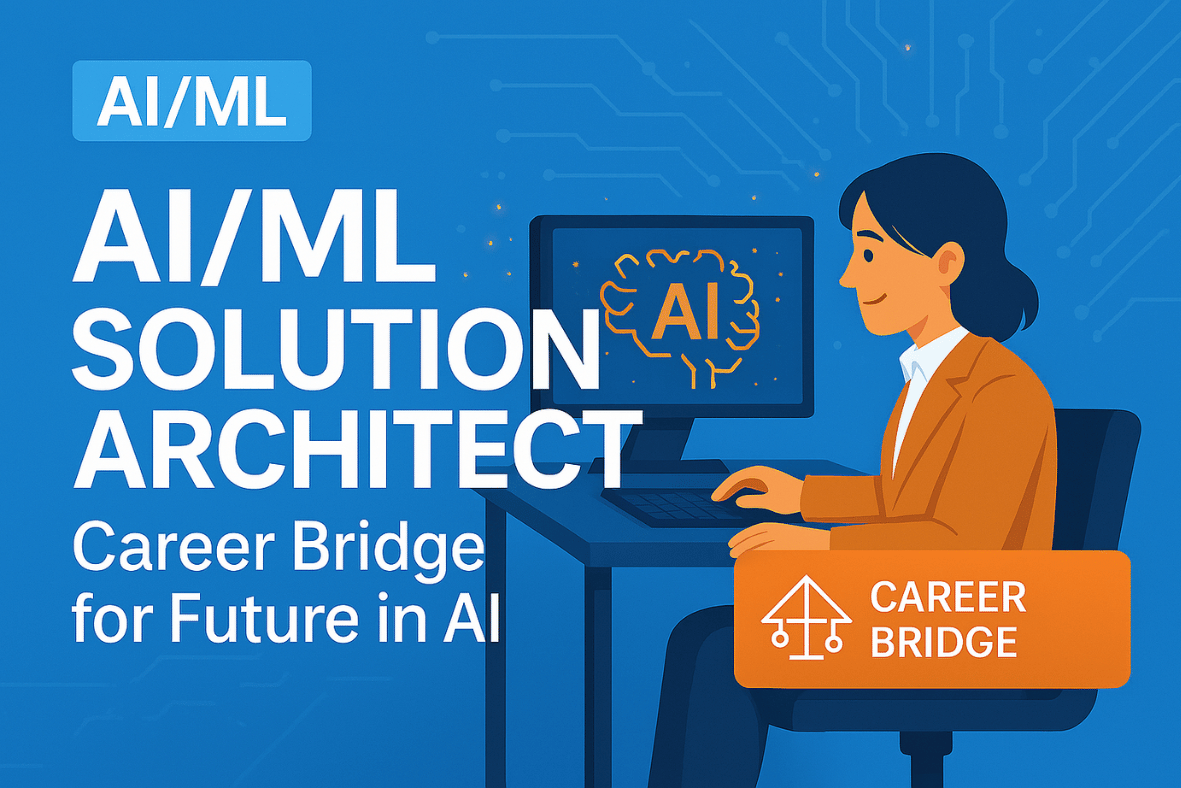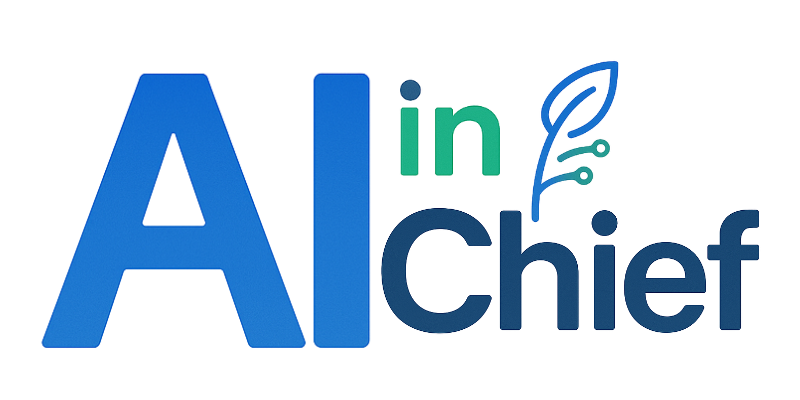ML Solution Architect's Career Bridge for Future in AI
ML Solution Architect - a key player in the future of enterprise AI. This blog will walk you through the role, required capabilities, tools to master, and how to prepare - whether you have 1 hour or 4 weeks.

🔍A Successful ML Solution Architect
A successful ML Solution Architect is part visionary, part engineer. They bring together business goals, machine learning potential, and solid system design to craft AI solutions that actually work in the real world.
They go beyond proof-of-concepts and notebooks to architect end-to-end ML systems that are scalable, secure, and aligned with business outcomes.
🎯 What Will You Learn?
- What makes this role critical in the AI future
- Skills and tools you need to succeed
- Key responsibilities you’ll own
- The exact words to put on your CV
- How to prepare for interviews - fast and effectively
🚀 Why This Role Matters in the AI Future
Many companies fail to scale their AI experiments. The ML Solution Architect ensures that models move from pilot to production, delivering consistent value.
This role is crucial because it connects:
- Data Science (model development)
- Engineering (infrastructure and automation)
- Product & Business Teams (alignment and impact)
AI won’t thrive without this bridge - and that’s where you come in.
✅ Key Success Factors
Want to thrive in this role? Focus on these key traits:
- Business Alignment: Speak the language of ROI and KPIs
- Architectural Thinking: Design scalable, modular ML systems
- Collaboration: Bridge teams with different priorities
- Continuous Learning: Stay updated with ML, DevOps, and cloud trends
🧩 Key Responsibilities
Here’s what ML Solution Architects typically do:
- Design scalable ML system architectures
- Define and implement ML pipelines (ETL, training, serving)
- Collaborate with engineers, data scientists, and business leaders
- Optimize cost, latency, and performance in production systems
- Own the full ML lifecycle - data to deployment and monitoring
🧠 Capabilities You Need to Succeed
Technical Skills:
- Python, ML libraries (TensorFlow, PyTorch, Scikit-learn)
- MLOps tools (MLflow, TFX, Kubeflow)
- Cloud platforms (AWS SageMaker, GCP Vertex AI, Azure ML)
- CI/CD, Docker, Kubernetes
Architectural Thinking:
- Microservices, APIs, streaming systems (Kafka, Spark)
- Model monitoring, retraining, and rollback strategies
Soft Skills:
- Communication, leadership, problem-solving, system-level thinking
🛠️ Top Tools to Learn and Crack the Interview
| Area | Tools |
|---|---|
| Modeling & Training | TensorFlow, PyTorch |
| MLOps & Deployment | MLflow, TFX, Kubeflow |
| Cloud Platforms | AWS SageMaker, GCP Vertex AI, Azure ML |
| Data Pipelines | Apache Airflow, Spark, Kafka |
| Monitoring & Observability | Prometheus, Grafana, Evidently AI |
| CI/CD & Infra | Docker, Kubernetes, Jenkins, Terraform |
📝 Top Keywords to Include in Your Resume
Want to stand out? Include these terms under your experience, skills, or summary:
- “End-to-end ML pipeline design”
- “Cloud-native ML infrastructure”
- “MLOps implementation”
- “Model serving and monitoring”
- “AI architecture for enterprise applications”
- “Data and model governance”
- “Cross-functional leadership”
💼 Don’t Have the Experience Yet?
🚨 No worries! You can gain hands-on experience through an internship with us.
You'll work on real-world problems, build portfolio projects, and get mentorship to boost your career. Let’s build your future, together.
⏱️ Only Have 1 Hour to Prepare for an Interview? Focus Here:
- Review the architecture of a standard ML pipeline (ingest → train → deploy)
- Learn about tools like MLflow, TFX, or SageMaker
- Read one enterprise ML case study (Uber Michelangelo, Netflix Metaflow, etc.)
- Prepare 2 STAR answers: one for a tech challenge, one for stakeholder management
📅 Have More Time? Here's Your Preparation Plan
1 Day Plan
- Polish your resume with keywords and architecture impact
- Watch a crash course on MLOps (YouTube/Udemy)
- Read up on cloud ML services you’re unfamiliar with
1 Week Plan
- Build a mini-project using MLflow or TFX
- Practice system design questions related to ML architecture
- Revisit common ML/AI pitfalls in production
4 Weeks Plan
- Complete a capstone: build and deploy a full ML solution
- Contribute to GitHub or write a blog post about your project
- Join a community (e.g., MLOps.community) and attend a virtual meetup
- Do mock interviews with a peer or mentor
✨ Final Thoughts
The ML Solution Architect isn’t just another tech role - it’s a leadership path in the age of AI. Whether you're a data engineer, ML engineer, or cloud architect, this could be your next evolution.
The future belongs to those who can turn models into solutions - and solutions into impact.
Ready to dive in? Want help building your ML Solution Architect journey?
👉 Join our internship or mentorship program. Let’s shape your AI future together

